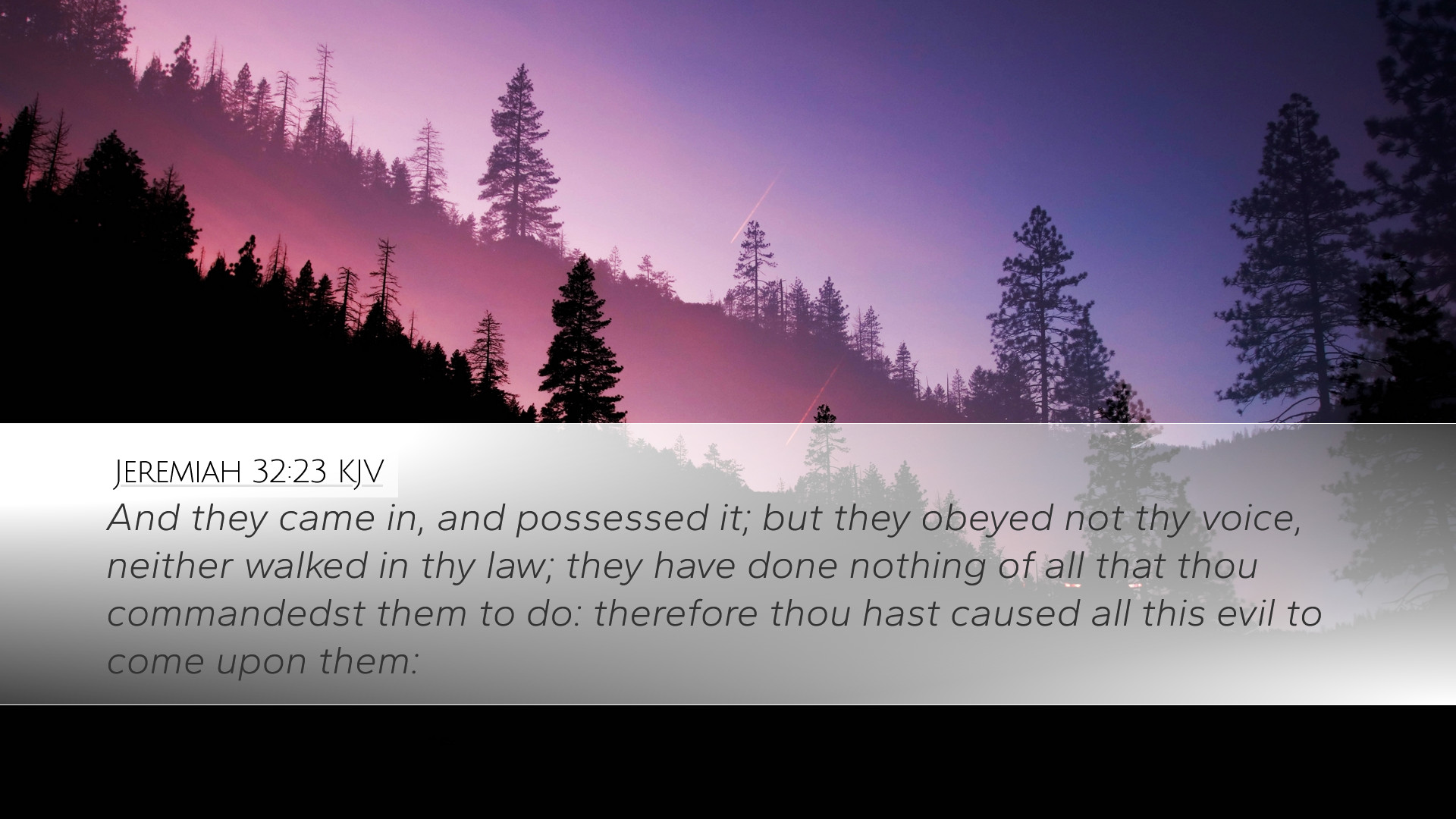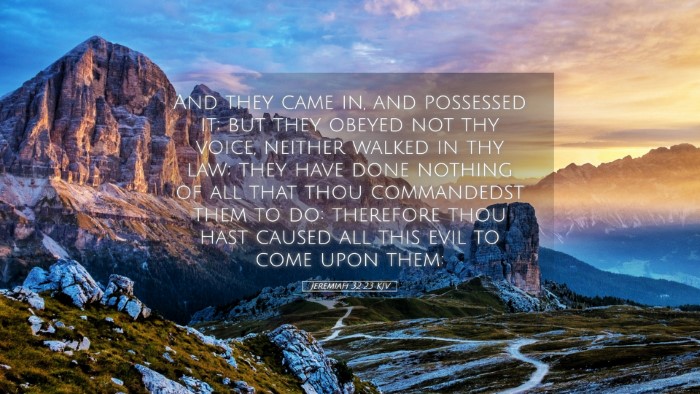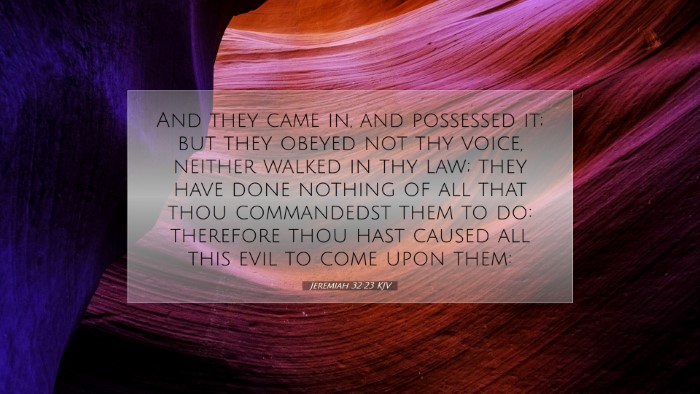Commentary on Jeremiah 32:23
Text of the Verse: "And they came in and possessed it; but they obeyed not thy voice, neither walked in thy law; they have done nothing of all that thou commandedst them to do: therefore thou hast caused all this evil to come upon them."
Overview
This verse draws a stark picture of disobedience among the people of Israel. Despite having entered and possessed the Promised Land, the Israelites failed to follow God's commandments. The commentary explores themes of disobedience, divine justice, and the consequences that arise from neglecting God's law.
Exegesis and Theological Insights
Jeremiah 32:23 speaks volumes about human nature in relation to divine law. The verse highlights several critical insights:
-
Possession of the Land:
The phrase "came in and possessed it" emphasizes God's fulfillment of His promise to the Israelites. It signifies that the land was a tangible symbol of God's covenant with His people.
-
Disobedience to God's Voice:
The acknowledgment of their failure, "they obeyed not thy voice," reveals profound truths about the nature of obedience in the covenant relationship. According to Matthew Henry, this disobedience indicates a disregard for God’s authority, leading to moral decay among the people.
-
Failure to Walk in His Law:
Walking in the law signifies a lifestyle of adherence to God's commands. Albert Barnes points out that this reflects an active choice to live in accordance with God's will. Their neglect resulted in a cycle of sin leading to national downfall.
Consequences of Disobedience
The latter part of the verse makes it clear that disobedience triggers divine repercussions: "therefore thou hast caused all this evil to come upon them." Here, Adam Clarke provides insight into the theological principle of divine justice. The resultant evils serve not merely as punishment but as a corrective measure to lead the people back to repentance.
-
Divine Justice:
Jeremiah's ministry consistently emphasizes God's righteous judgment. The evils faced by the Israelites are portrayed as not arbitrary but a direct result of their actions. Divine holiness necessitates consequences for sin.
-
Call to Repentance:
In the face of judgment, the call to repentance is implicit. God desires not only to punish but to restore His people. The juxtaposition of possession and disobedience serves as a warning and a call towards a faithful return.
Theological Reflection
This verse invites readers to reflect on several pertinent questions:
-
The Nature of Obedience:
What does it mean to obey God today? How is our understanding of His law shaped by our covenant relationship through Christ?
-
The Consequences of Disobedience:
What “evils” might we face as a consequence of our disobedience? How does this inform our understanding of grace?
-
The Promise of Restoration:
In light of divine judgment, how can we foster a culture of repentance and restoration within the Church?
Conclusion
Jeremiah 32:23 serves as both a historical narrative and a timeless truth about the relationship between God and His people. The persistent call for fidelity to His commandments resonates profoundly across generations. For pastors, students, and theologians, this verse serves as a potent reminder of the gravity of obedience, the nature of God’s justice, and the hope found in repentance and restoration.
May we seek to live in accordance with God’s voice, actively engage with His law, and respond to His promptings with hearts open to His grace.


